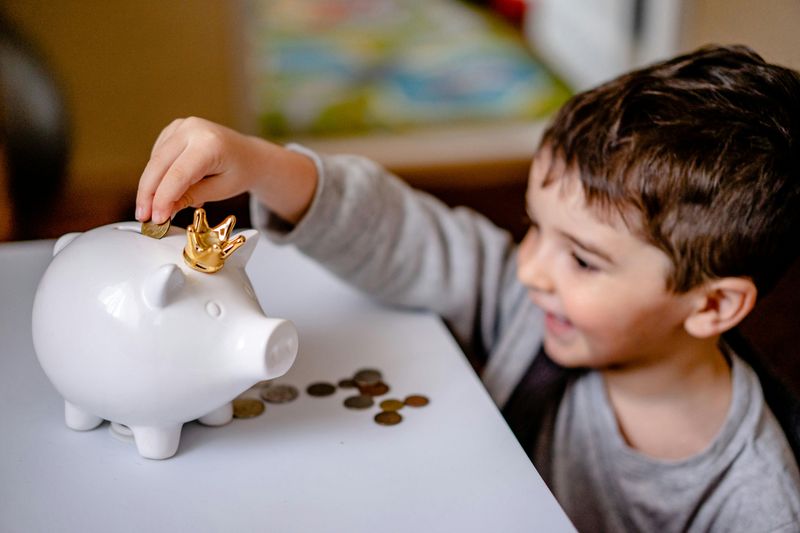The 10 Life Skills Every Parent Should Teach (But Most Don’t)

Most parents focus on academics and sports, but what about the skills that actually shape who kids become as adults? The truth is, many essential life abilities get overlooked in the daily hustle. Teaching children how to understand their feelings, make smart choices, and bounce back from setbacks prepares them for real-world challenges far better than any test score ever could.
1. Talking About Their Feelings

When children learn to express what’s going on inside, they unlock a superpower that many adults still struggle with. Openly discussing emotions like frustration, sadness, or joy helps kids process their experiences instead of keeping everything bottled up.
This practice strengthens their communication skills and builds healthier relationships throughout their lives. Parents can encourage this by simply asking, “How did that make you feel?” rather than dismissing emotions.
Creating a safe space where all feelings are valid teaches children that it’s okay to be vulnerable. Over time, they develop the confidence to share openly with friends, teachers, and eventually their own families.
2. Naming Their Emotions

Imagine feeling upset but not knowing whether you’re angry, disappointed, or just tired. Without the right words, emotions become confusing storms inside a child’s mind.
Teaching kids to label what they feel—whether it’s excitement, jealousy, or nervousness—gives them clarity and control over their inner world. This skill also builds empathy because once children understand their own emotions, they can recognize them in others.
Simple tools like emotion charts or daily check-ins help kids practice this ability. As they grow, emotional awareness becomes the foundation for strong relationships and better decision-making in every area of life.
3. Making Their Own Choices

Helicopter parenting might feel protective, but it robs kids of something crucial: the chance to think for themselves. Allowing children to make age-appropriate decisions—like choosing their outfit, picking an after-school activity, or deciding how to spend their allowance—builds confidence and accountability.
Each choice becomes a tiny lesson in cause and effect. When kids make decisions, they also learn to live with the outcomes, whether good or bad. This process teaches responsibility far better than any lecture ever could.
Starting small and gradually increasing the stakes prepares children to handle bigger life choices with wisdom and independence as they mature.
4. Empowering Themselves

Life will knock your kids down—that’s a guarantee. What matters is whether they know how to get back up. Teaching children to handle setbacks, loss, and even forgiveness gives them resilience that lasts a lifetime.
Empowerment comes from within, not from constant parental rescue missions. Parents can foster this by letting kids solve their own problems whenever possible.
Instead of fixing everything, ask guiding questions like, “What do you think you could try?” Encourage them to learn from mistakes rather than fear them. When children realize they have the tools to overcome challenges, they develop an unshakable belief in their own abilities.
5. Being Self-Sufficient

There’s a special kind of confidence that comes from knowing you can take care of yourself. Kids who learn basic self-care—like making a sandwich, doing laundry, managing their homework schedule, or setting an alarm—feel capable and secure as they grow.
These aren’t just chores; they’re building blocks of independence. Self-sufficiency also reduces anxiety because children know they can handle everyday situations without constant help.
Start teaching these skills early and gradually increase complexity as they mature. By the time they leave home, they’ll have the practical knowledge and confidence to thrive on their own, not just survive.
6. Regulating Their Emotions

Meltdowns happen, but they don’t have to define every difficult moment. Teaching kids to manage big feelings calmly—even when they’re upset, scared, or frustrated—helps them think clearly instead of reacting impulsively.
Emotional regulation is like having an internal thermostat that keeps things from boiling over. Simple techniques like deep breathing, counting to ten, or taking a break can make a huge difference.
Parents can model this behavior by staying calm during their own stressful moments. When children learn to pause and process before reacting, they develop better relationships, make smarter choices, and handle life’s curveballs with grace instead of chaos.
7. Handling Disappointment

Not making the team, losing a game, or getting a bad grade—these moments sting, but they’re also powerful teachers. Children who learn to cope with disappointment in healthy ways develop perseverance and emotional maturity that serves them forever.
The key is helping them see setbacks as temporary, not permanent. Parents can guide this by acknowledging the hurt while encouraging perspective.
Phrases like “I know this is hard, but what can we learn from it?” shift the focus from defeat to growth. When kids understand that failure is part of success, they become braver about trying new things and bouncing back stronger each time.
8. Knowing and Accepting Limitations

Social media tells kids they can be anything, but real wisdom comes from understanding that everyone has strengths and weaknesses. Teaching children to recognize their limitations doesn’t crush their dreams—it builds humility and realistic self-expectations.
Knowing what you’re not good at is just as important as celebrating what you excel at. This skill prevents burnout and unnecessary frustration because kids learn to focus their energy where it matters most.
Encourage your child to try many things but also to accept when something isn’t their forte. When they understand that nobody is perfect at everything, they develop compassion for themselves and others.
9. Managing Money

Money skills aren’t taught in most schools, yet they’re critical for adult success. Teaching kids the value of saving, spending wisely, and planning for the future instills lifelong responsibility.
Even simple lessons—like saving part of their allowance or comparing prices at the store—build financial awareness that compounds over time. Let children make spending mistakes with small amounts so they learn consequences early.
Explain concepts like needs versus wants and the power of delayed gratification. When kids understand that money is a tool requiring smart choices, they’re far less likely to struggle with debt or poor financial decisions as adults.
10. Practicing Gratitude

In a world obsessed with more, teaching kids to appreciate what they have is revolutionary. Gratitude shifts focus from what’s missing to what’s present, creating a positive mindset that improves mental health and relationships.
Children who regularly practice thankfulness become happier, more empathetic, and less entitled as they grow. Simple habits like sharing daily highs at dinner or keeping a gratitude journal make this skill second nature.
Model it yourself by expressing thanks for small things—a sunny day, a kind gesture, or a good meal. When gratitude becomes part of your family culture, kids learn to find joy in everyday moments instead of constantly chasing the next big thing.

Comments
Loading…